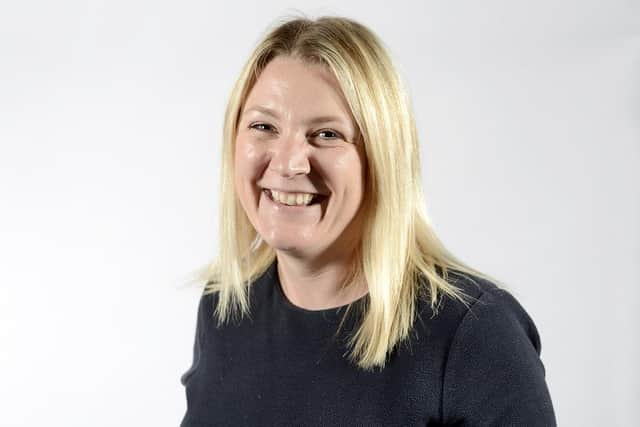COLUMN: How we help the county with its mental health


Getting fit has long topped many News Year’s resolutions lists. But what of our mental fitness?
Financial worries, juggling demands and isolation through home working are just some of the reasons we may feel like there is little left in the tank. When things build, this can be when our psychological wellbeing may deteriorate – sometimes before we even really recognise it.
Advertisement
Hide AdAdvertisement
Hide AdIf this continues, it can also lead to a deterioration in our mental health.


Getting out for a walk, meeting a friend and eating well are some of the top tips we’re probably all familiar with to boost our wellbeing. But if we’re feeling overwhelmed or despondent, it is easy to put too many barriers in the way to embrace these. And that’s when we need more help.
At LPFT, we’re here for you. We provide a range of mental health services across the county, as well as support for people with learning disabilities, autistic people and those living with dementia.
If some of the feelings of I’ve described resonate with you, please do read on.
Advertisement
Hide AdAdvertisement
Hide AdOur Recovery College offers a broad range of free courses on topics including sleep, anxiety, stress, self-esteem, mental health and building routine. This isn’t an exhaustive list, so I’d encourage you to explore our website to see what’s on offer at www.lpft.nhs.uk/recovery-college
All these sessions offer interaction with course leaders and those who have been through similar situations. Making connections and knowing there are others feeling as you do, can be hugely reassuring. All sessions are open to anyone living in the county. Some are in person, some online.
For mild to moderate common mental health issues, such as depression, we offer Talking Therapies. You can self-refer via our website at Lincolnshiretalkingtherapies.nhs.uk or by calling 0303 123 4000. While at times, it is completely normal to feel low or overwhelmed, if these feelings persist and have a negative impact on your day to day life, it really is important to seek the right help.
You can call Lincolnshire’s mental health helpline, which is open 24/7 on 0800 001 4331.
Advertisement
Hide AdAdvertisement
Hide AdThe Lincolnshire Here4You advice line, which offers emotional wellbeing and mental health advice for young people and their families, is also open 24/7 on 0800 234 6342.
It may feel intimidating to reach out, or as if you don’t wish to bother anyone. But please don’t be deterred. One in four of us will experience a common mental health problem at some point in our lives. In fact, the true number is likely much higher.
To find out more about the services we offer people across Lincolnshire, visit www.lpft.nhs.uk